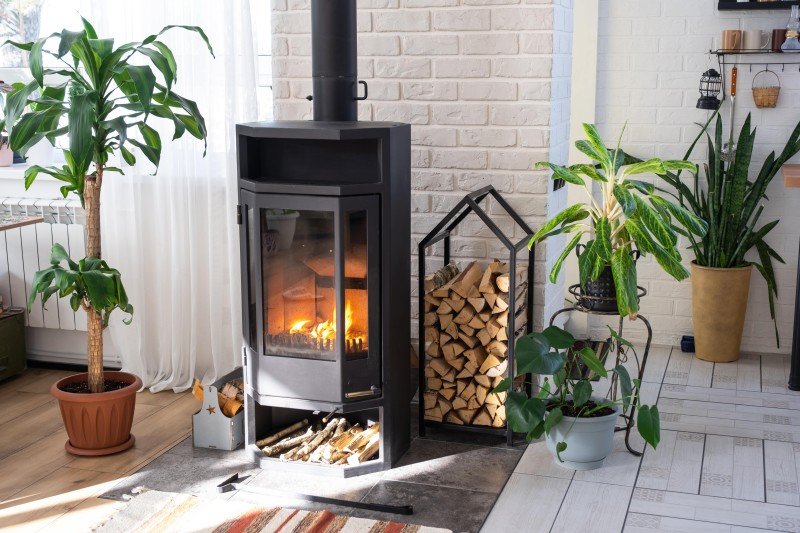The Best Fireplaces: A Comprehensive Guide for Homeowners
Fireplaces have actually long been a precious feature in homes, providing both heat and an inviting environment. They come in various styles, sizes, and fuel types, enabling property owners to pick one that fits their personal aesthetic and heating needs. This post looks into the best fireplaces, highlighting crucial features and considerations to assist you make a notified decision.
Types of Fireplaces
Understanding the various kinds of fireplaces is important in choosing the best option for your home. Below are the most commonly utilized fireplaces:
Wood-Burning Fireplaces
- Benefits: Traditional appeal, natural atmosphere, and efficient heating.
- Drawbacks: Requires routine upkeep, ash disposal, and undergoes local regulations concerning emissions.
Gas Fireplaces
- Advantages: Convenient, clean-burning, and simple to run.
- Downsides: Requires a gas line, can be more expensive to install at first.
Electric Fireplaces
- Advantages: Easy installation, low upkeep, and the safest option for homes with kids or family pets.
- Disadvantages: Lack the authentic feel of wood or gas flames, might not warm large areas effectively.
Pellet Stoves
- Benefits: Eco-friendly, effective, and provide a steady heat output.
- Disadvantages: Requires electrical power to operate, and pellet supply can be limited in some locations.
Ethanol Fireplaces
- Benefits: No chimney needed, portable, and eco-friendly.
- Disadvantages: Generally less effective for heating.
A Comparison of Fireplace Types
| Type | Installation Cost | Running Cost | Heat Output | Maintenance | Ecological Impact |
|---|---|---|---|---|---|
| Wood-Burning | ₤ ₤ | ₤ | High | High | Moderate |
| Gas | ₤ ₤ ₤ | ₤ ₤ | Medium-High | Low | Moderate |
| Electric | ₤ | ₤ ₤ | Low | Really Low | Low |
| Pellet | ₤ ₤ | ₤ | Medium | Medium | Low |
| Ethanol | ₤ ₤ | ₤ ₤ ₤ | Low | Extremely Low | Extremely Low |
Top Considerations When Choosing a Fireplace
When you're in the market for a new fireplace, keep the following consider mind to guarantee you choose the very best one for your home:
- Purpose and Functionality: What do you desire your fireplace to do? Is it for heating or looks? This will assist your choice significantly.
- Space Availability: Measure the area where you want to install the fireplace. Guarantee the selected type fits without overwhelming the space.
- Fuel Source: Assess the availability and expense of various fuel sources in your location to prevent unforeseen expenses.
- Setup Complexity: Some fireplaces might need significant changes to your existing home structure.
- Building Regulations and Regulations: Be aware of local laws concerning ventilation, security, and emissions, as these can influence your fireplace choice.
- Visual Appeal: The design and style of a fireplace can work as a focal point or complement the existing decoration, so choose one that improves your home's total aesthetic.
Benefits of a Fireplace
Including a fireplace to your home affords numerous advantages:
- Enhanced Aesthetic Appeal: A fireplace can raise the design of any room, creating a cozy and inviting atmosphere.
- Increased Home Value: A well-installed fireplace can include significant worth to your home, making it attracting prospective buyers.
- Energy Efficiency: Modern fireplaces, particularly gas and pellet stoves, can provide efficient heating while reducing energy expenses.
- Emergency Heat Source: In cases of power interruptions, a wood or gas fireplace can work as a trusted heat source.
- Celebration Space: Fireplaces frequently become the centerpiece for events, promoting warmth and convenience during friend or family' parties.
Often Asked Questions (FAQs)
Q: How much does it cost to set up a fireplace?A: Installation expenses can vary significantly based on the type of fireplace, structural requirements, and labor expenses. Basic electric fireplaces may cost around ₤ 300, while customized wood or gas fireplaces can range from ₤ 3,000 to upwards of ₤ 10,000. Fireplaces Sale : Are electric fireplaces safe?A: Yes, electric
fireplaces are generally safe.
They do not discharge carbon monoxide gas and have no open flames. They typically consist of safety features like automated shut-off mechanisms. Q: How frequently should I have my chimney cleaned?A: If you utilize a wood-burning fireplace, it's advised to have your chimney cleaned up at least when a year
to avoid creosote accumulation, which can result in chimney fires. Q: Can I set up a gas fireplace myself?A: It's not advisable to install a gas fireplace without professional assistance due to the complexities related to gas
lines, ventilation, and security guidelines. Q: What are the best kinds of fuel for wood-burning fireplaces?A: The best fuel options consist of well-seasoned hardwoods like oak, maple, or hickory, as they burn hotter and cleaner compared to softwoods. Selecting the very best fireplace for your home
includes considering lots of aspects, from aesthetic appeals to operate and security. Each type of fireplace has its distinct advantages and possible disadvantages.
Understanding these aspects, along with your individual heating requirements and spending plan restrictions, will guide you in making a notified decision. Ultimately, a fireplace can provide not only warmth but also an abundant ambiance, changing your home into a welcoming sanctuary.

